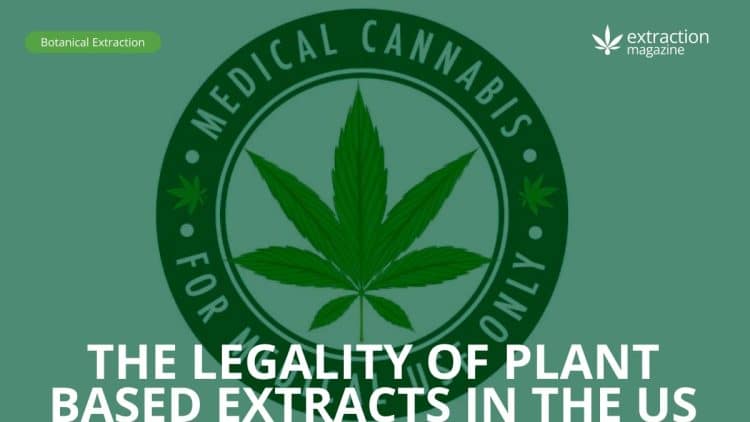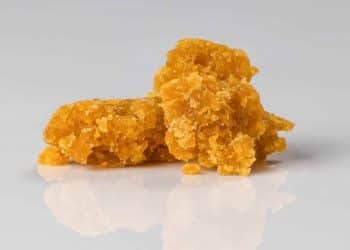Plant based extracts is a vital part of multiple industries across the United States. Whether it is food, cosmetics, pharmaceuticals or more, plant extracts play a major role in the products Americans consume on a daily basis. Depending on how the merchandise is marketed, the regulations can vary in dramatic ways. Untangling the complicated legislation surrounding plant based products and extracts is not only essential for new businesses, but also for existing ones to make sure they remain in compliance with all federal and local laws.
Regulatory Foundations for Plant Based Products
In the late 19th and early 20th century, America was facing an epidemic. Food and Drug manufacturers were free to develop products designed for human consumption without any regulation, which led to an outbreak of scams, diseases, and, in some cases, poisonings. [1] This came to a head when meat packaging practices were exposed in the book “The Jungle” by Upton Sinclair. [2]
Congress had no choice but to do something to protect consumers, and they did so by passing the Pure Food and Drug Act of 1906. [3] This was the first law designed to protect consumers, and it did so by outlawing mislabeled or adulterated food and drugs. Though this law was revolutionary in the United States, there was still a lot of room for manufacturers to produce harmful products. Just because a label discloses the presence of drugs like cocaine, heroin, or cyanide doesn’t mean the product is safe for human consumption. [4] Because of this, congress felt that accurate labeling didn’t provide sufficient protection, and further steps need to be taken.
In 1938, the federal government addressed this oversight by also stating what was safe for consumers to ingest. This law became the Food, Drug, and Cosmetics Act, which helped to establish the Food and Drug Administration (FDA). [5] Today, the FDA is responsible for regulating any product intended for human consumption, including those requiring plant based extraction.
Plant based extracts represent only a small portion of the regulations defined by the law, and depending on how the product is being marketed determines how strict the regulations are. The FDA is primarily responsible for overseeing product labels, contents, advertisements, and manufacturing procedures to ensure safety and accuracy for consumers. The Food, Drug, and Cosmetic act also helped to define the differences between each category, helping to establish regulatory groundwork for safe products in each field. In the 85 years since its passage, this act has been amended more than 30 times to address new problems or concerns that may pose various risks to Americans. [6] One of the best examples of these changes came in the form of dietary supplements.
Defining Dietary Supplements
The goal of the FDA is to ensure products are safe for consumption, but the standards are different for food compared to drugs. The risk of overdosing on food is low, but it is high for certain pharmaceuticals. Conversely, drugs may provide relief from medical discomforts, but they don’t need to provide nutritional value. Dietary supplements, often sourced from plant materials, fall somewhere in the middle.
In 1991, congress attempted to tighten the definition of these supplements with the proposed Nutrition Advertising Coordination Act, which would increase FDA control over the industry. [7] The bill failed, but multiple dietary supplement companies saw this as a threat. In response, they launched a lobbying campaign that ultimately led to the passage of the bipartisan The Dietary Supplement Health and Education Act of 1994 (DSHEA). [8][9] This law, which created a list of approved dietary supplement, had the opposite effect of the original Nutrition Advertising Coordination act and severely hampered the FDA’s ability to regulate the industry. [10]
The DSHEA cemented dietary supplements as neither food nor drug, and therefore excluded from the regulations that apply to either category. This means the primary area of concern for the FDA relates to mislabeling or adulterating the supplements. [11] As long as what is being sold only includes ingredients from the approved list and the labels are accurate, dietary supplement companies are in compliance with both the Pure Food and Drug Act and the Food, Drug, and Cosmetics Act. There is still one major loophole that remains. The FDA is not responsible for any claims made by the manufacturers about the effects of their products. This responsibility falls to individual firms to substantiate their own claims, based on any data they collect, creating a potential conflict of interest. [12] Numbers may vary depending on the product, but one study found that 50-82% of supplement advertisers can be misleading in either content or claims presented. [13] It would be incorrect to assume that all dietary supplement providers manipulate their data for the sake of increasing their sales, but this regulatory loophole gives manufactures the ability to do so in ways that do not equally apply to either food or drugs.
Ongoing Legal Challenges
In the same way that dietary supplements fall into a legal crack, the FDA is working on many other products to try to establish firm regulatory controls going forward. Some of that may be how to regulate new technological practices like Genetically Modified Organism (GMO) or Plant-based meats. [14][15] The concern with these products revolves around balancing food supply with consumer safety while still allowing businesses to develop. Another concern applies to the evolving situation surrounding cannabis regulations. While no tetrahydrocannabinol (THC) products have been approved by the FDA, they believe the current classification for cannabidiol (CBD) is inadequate, and they approved even one CBD based drug to treat epilepsy.[16][17] Plant based extracts exists in a growing number of products, and as these goods are brought to market the FDA’s job becomes increasingly more complicated.
References:
- Barkan, Ilyse D. “Industry invites regulation: the passage of the Pure Food and Drug Act of 1906.” American Journal of Public Health 75.1 (1985): 18-26.
- Sinclair, Upton, and Earl Lee. The Jungle: The Uncensored Original Edition. See Sharp Press, 2003.
- Law, Marc, and Gary D. Libecap. “The determinants of progressive Era reform. The pure food and drugs act of 1906.” Corruption and reform: Lessons from America’s economic history. University of Chicago Press, 2006. 319-342.
- Wax, Paul M. “Elixirs, diluents, and the passage of the 1938 Federal Food, Drug and Cosmetic Act.” Annals of internal medicine 122.6 (1995): 456-461.
- Office of the Commissioner. (2018). Selected Amendments to the FD&C Act. U.S. Food And Drug Administration.
- United States Congress. (1991, April 9). Nutrition Advertising Coordination Act of 1991. congress.gov. Retrieved June 29, 2023
- Silverglade, Bruce. “The vitamin wars—marketing, lobbying, and the consumer.” Journal of Public Policy & Marketing 13.1 (1994): 152-154.
- United States Congress. (1994, October 7). S.784 – Dietary Supplement Health and Education Act of 1994. congress.gov. Retrieved June 29, 2023
- Nutrition, C. F. F. S. a. A. (2023). Dietary Supplement Ingredient Directory. U.S. Food And Drug Administration.
- Nutrition, C. F. F. S. a. A. (2023a). Dietary Supplements. U.S. Food And Drug Administration.
- Nutrition, C. F. F. S. a. A. (2022). Questions and Answers on Dietary Supplements. U.S. Food And Drug Administration.
- Ziemba, Joseph T. “Pumping steel and sex appeal: message strategies and content in dietary supplement advertisements.” Elon Journal of Undergraduate Research in Communications 4.1 (2013).
- Nutrition, C. F. F. S. a. A. (2022a). GMO Crops, Animal Food, and Beyond. U.S. Food And Drug Administration.
- Foods Program Guidance Under Development
- Office of the Commissioner. (2023). FDA Concludes that Existing Regulatory Frameworks for Foods and Supplements are Not Appropriate for Cannabidiol, Will Work with Congress on a New Way Forward. U.S. Food And Drug Administration.
- Office of the Commissioner. (2018b). FDA Approves First Drug Comprised of an Active Ingredient Derived from Marijuana to Treat Rare, Severe Forms of Epilepsy. U.S. Food And Drug Administration.
Updated July 2023












